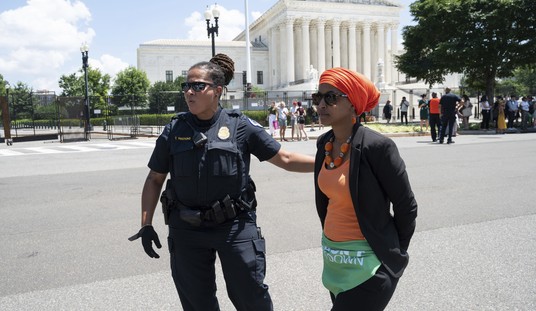The right to freedom of expression is still under constant attack, and it is only getting worse. The authoritarian left is intent on limiting what ideas others are allowed to express.
In Michigan, state lawmakers are currently trying to enact legislation that would allow the government to punish those who espouse certain views, particularly related to members of the LGBTQ community.
Michigan’s House of Representatives recently passed a bill, HB 4474, that could criminalize the intentional use of incorrect gender pronouns to intimidate someone. Offenders could face up to five years in prison or a fine of up to $10,000. The bill covers acts of harassment that cause a reasonable person to feel terrorized, frightened, or threatened.
It specifically protects sexual orientation and gender identity or expression as well. Critics argue that the bill violates the First Amendment and could be used to suppress those who do not buy into progressive gender ideology. The legislation now moves to the Michigan State Senate for consideration and, if approved, is expected to be signed into law by Gov. Gretchen Whitmer, who happens to be one of the most authoritarian governors in the nation.
On the other side of the debate, Democrats and others who support the legislation argue that it would not allow the state to punish people simply for referring to someone by the wrong pronouns:
Misinformation spread rapidly on social media last week claiming that legislation expanding Michigan’s hate crime law to include protections for gay and transgender individuals would make it a felony for using a person’s wrong pronoun.
However, House Bill 4474 doesn’t even contain the word “pronouns,” much less set out any sort of legal framework to criminalize misidentifying of gender or disagreeing with an individual’s preference to be referred to as he, she or they.
Some conservative critics have taken a couple of words in the bill’s text that says any action that “threatens by word or act” and interpreted it to mean that addressing someone as a “he” when the individual identifies as “she” would be a threat punishable by up to five years in prison and a $10,000 fine.
Despite claims made by defenders of the measure, others insist that the legislation could be used to punish individuals in a way that violates the Constitution and make a distinction between hate speech and threats:
Eric J. Segall, the Kathy & Lawrence Ashe Professor of Law at Georgia State University, told Newsweek that “the law basically says you can’t threaten somebody with speech that will discriminate on the basis of sexual orientation or gender identity. And here’s the deal. Hate speech and threats aren’t the same thing.”
In the U.S., it’s legal for someone to say, as per Segall’s example, something along the line of “I think all gays and lesbians should be sent to prison or we should make it illegal in this country to have gay sex,” as long as this sentence doesn’t identify any one person or targeting any individual. The First Amendment, which protects freedom of speech, makes no exception for offensive, repugnant, or hateful expression.
“However, the fact that I can stand on a street corner and say ‘All Jews should be sent back to Israel’—which I can do in America—does not mean that I can go up to a Jewish person and get in their face and say, ‘You should be sent back to Israel'” Segall said.
“If I do that in a way that is threatening, then it may become what’s called a true threat. And a true threat is not protected speech under the First Amendment,” he said. “And the court just held last week that the test basically is the person either intended to cause harm, or use speech in a reckless way.”
Reckless means that the person should have known that the speech would cause someone to feel threatened.
“So if you take that setup, then this law probably is unconstitutional, depending how it’s applied, because I don’t know if it requires that face-to-face harassment,” Segall said of the Michigan law.
Segall continued, noting that states “are not allowed to make what are called ‘content-baseed distinctions’ of speech.”
He added: “There are two ways this law could be unconstitutional: one is that it goes beyond true threats; two, it kind of makes a content-based distinction in the statutes, and they’re not allowed to do that.”
Despite what its defenders say, if this law is allowed to stand, it will only be the beginning. While it does not expressly mandate that if one “misgenders” another person, they could be subject to punishment, it seems to be vague enough when referencing “threats” that the state might be able to use it to target people for their political beliefs. Moreover, this will embolden other states to adopt similar measures, expanding the scope of speech subject to punishment and placing our fundamental freedoms at risk.
Proponents of HB 4474 claim that the legislation is essential to protect individuals from harassment and ensure their safety. However, this represents an alarming overreach of government power and would be an infringement on the First Amendment rights of individuals.
Hate crime laws are already a problematic example of government overreach – expanding the principle underlying these measures to include supposed threats could easily be seen as authoritarians in government inching closer toward outright infringements on the First Amendment. The danger lies not only in the immediate impact on free speech but also in the potential for future encroachments on our constitutional rights.
The proponents of restrictive speech laws often argue that they are acting in the best interests of marginalized communities and fostering inclusivity. However, the enforcement of such laws through the threat of imprisonment or financial penalties is the type of approach that would make Joseph Stalin grin.
By resorting to state-sanctioned coercion and control, these advocates reveal a willingness to employ forceful tactics to silence dissenting voices, stifling the open exchange of ideas and leading to more violations of natural rights. If those who prefer liberty don’t push back, this will be our new reality.













